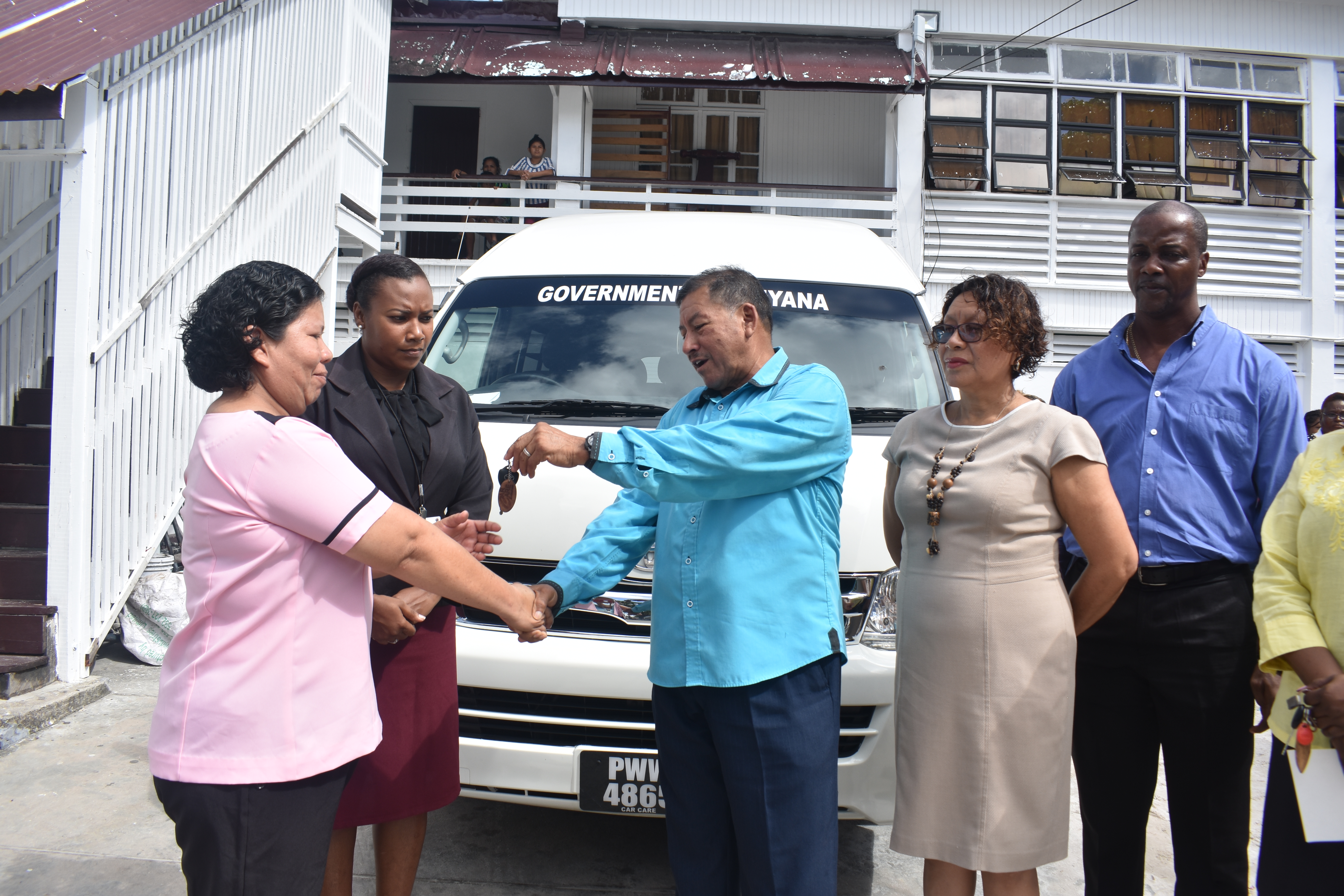
The Indigenous Residence on Thursday received a significant boost to its daily operations with the injection of a much needed Minibus geared at meeting its transportation needs.
During a simple yet significant handing over ceremony at the facility’s Princess Street location on November 26, Vice President and Minister of Indigenous Peoples’ Affairs Sydney Allicock noted that “we have been working continuously to get things better for the indigenous peoples”.
He said while limited resources can prove to be very challenging “it is expected that in the future we will be better equipped to take care of the needs of our hinterland people”.
Meanwhile, Minister within the Ministry Valerie Garrido-Lowe said this is a happy occasion for us all “and you our people here, coming out from all the regions and the different villages…. because you know why, when you go to the hospital to take care of your family, to take food for them, dress and help to clean them and you want to return sometimes it can be hard….so this here as simple as it is, it is very significant. This will help you so much and ease us here at the ministry knowing that you will have the comfort that you need”.
Administrator of the facility Claire Emmanuel after receiving the key to the vehicle thanked the Government and the Ministry for its continued support noting that “I know it will benefit the people here in terms of transporting them to and from the hospital, it’s been difficult over the years and this transportation being provided will benefit them”.
It is the first time that the Indigenous Residence will have a vehicle specifically assigned to address its transportation needs since its existence.
The Residence which was established in 1976 provided accommodation for Hinterland students pursuing a higher level of education not available in the Hinterland as well as provided shelter for those patients who have been referred to the Georgetown Public Hospital Corporation (GPHC) seeking medical attention.
However, over the years, the facility has evolved such that majority of persons accommodated are patients and accompanying relatives.
It has also expanded its services to cater to the needs of persons in difficult situations including domestic violence, trafficking in persons, labor issues, discharged prisoners or any other similar situation.
Additionally, several transformative projects are currently ongoing at the facility that is home to more than 100 patients on a monthly basis.
Among the projects completed to date is the much needed extension to the dining area which can now accommodate more persons in comfort, while works are ongoing to complete painting of the building, repairs and painting to the concrete fence and construction of a mesh fence securing what will be an upgrade recreational facility which was already sand-filled on the perimeter of the building, sprucing up of the immediate surroundings and sand filling the landscaping of the trestle area and repairs to the upstairs washrooms facility.
Minister Allicock and Minister Garrido-Lowe also inspected the ongoing works as well as the completed dining area.
The last time the residence (Amerindian Hostel) received any form of was rehabilitation was approximately thirteen years ago.

